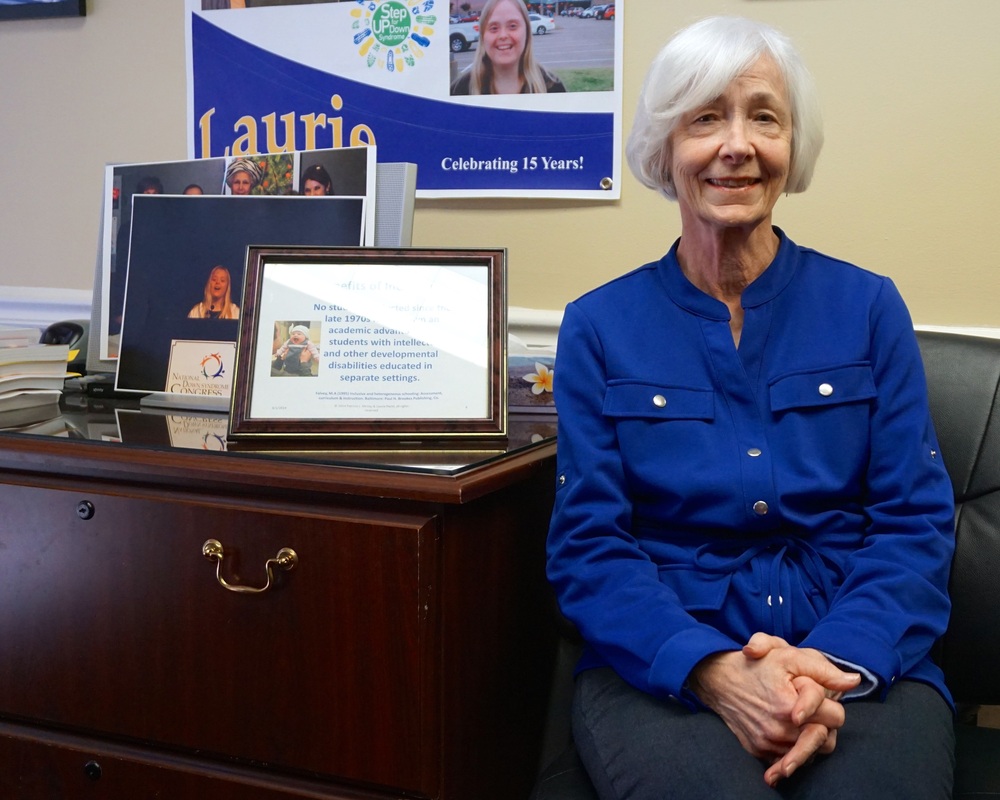"My son Keith was a happy, healthy baby, but when he was two months old, the doctor told us (on the phone) that there might be something wrong. He said he was concerned and sent us to a geneticist. Six weeks is a long time to wait for the results of a chromosomal test, so I went back to our doctor and said, 'I need to know something.' He said, 'Have you ever heard of Mongolism?' That's what they called it back then. Mongolism. Then he said, 'I'm sure it's nothing, I'm sure he's okay.' They didn't want to tell us anything. They didn't want to worry us, but of course we were alarmed.
"When it was confirmed that Keith had Down Syndrome and that he would have mental retardation, all the doctors told us was to just to take him home and love him. That's all they said. They didn't give us any information or any hope. We weren't told about any resources and weren't encouraged to have any expectations for him. We had no idea what to do.
"Then we heard about the National Down Syndrome Congress, which had been established about the time Keith was born. Even though there was no Internet at that time, we were still able to be in touch with parents all over the U.S. That's what saved us. That's what gave us hope. We started advocating for Keith and expecting the same things for him as for any other child.
"He has done well. He started working an after-school job when he was 15, and he's been working ever since. He's 42 now, owns his own home, and lives with two friends. He's part of a Medicaid program that is available in every state. He has staff to help him with transportation, to help him learn new things on the job, to help him problem-solve when he needs it, and to help cook for him. The waiting list to get these sorts of services is long though.
"Things are so different now for people who have Down Syndrome. Physicians, especially pediatricians, know so much more about it and are able to make referrals to early intervention programs much sooner. Instead of being segregated from society, people who have Down Syndrome live in and are part of their communities. Society is much more inclusive. We have a long way to go to provide the support people need to be on their own and to be independent, but we're making progress.
"People with Down Syndrome are just people. They have likes and dislikes, interests, feelings, and personalities. Each person is a unique individual in the same way that all of us are."
"When it was confirmed that Keith had Down Syndrome and that he would have mental retardation, all the doctors told us was to just to take him home and love him. That's all they said. They didn't give us any information or any hope. We weren't told about any resources and weren't encouraged to have any expectations for him. We had no idea what to do.
"Then we heard about the National Down Syndrome Congress, which had been established about the time Keith was born. Even though there was no Internet at that time, we were still able to be in touch with parents all over the U.S. That's what saved us. That's what gave us hope. We started advocating for Keith and expecting the same things for him as for any other child.
"He has done well. He started working an after-school job when he was 15, and he's been working ever since. He's 42 now, owns his own home, and lives with two friends. He's part of a Medicaid program that is available in every state. He has staff to help him with transportation, to help him learn new things on the job, to help him problem-solve when he needs it, and to help cook for him. The waiting list to get these sorts of services is long though.
"Things are so different now for people who have Down Syndrome. Physicians, especially pediatricians, know so much more about it and are able to make referrals to early intervention programs much sooner. Instead of being segregated from society, people who have Down Syndrome live in and are part of their communities. Society is much more inclusive. We have a long way to go to provide the support people need to be on their own and to be independent, but we're making progress.
"People with Down Syndrome are just people. They have likes and dislikes, interests, feelings, and personalities. Each person is a unique individual in the same way that all of us are."
March 21 is World Down Syndrome Awareness Day.
For more information---
For more information---
- FB: http://www.facebook.com/DSAMemphis
- Instagram: DSA_MEM
- Twitter: @DSAMemphis
- Website: http://www.dsamemphis.org
- TN Disability Coalition: http://www.tndisability.org

 RSS Feed
RSS Feed